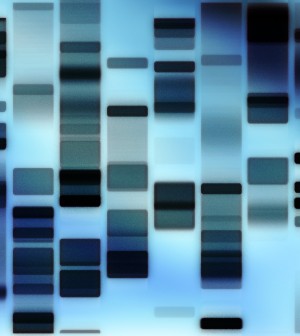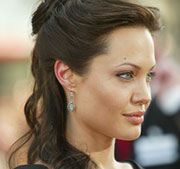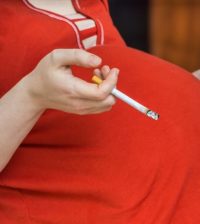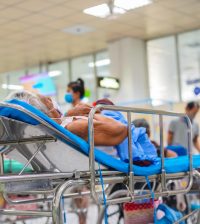- Calories, Not Meal Timing, Key to Weight Loss: Study
- Dietary Changes May Beat Meds in Treating IBS
- Screen Pregnant Women for Syphilis, Ob-Gyn Group Advises
- Even With Weight Gain, Quitting Smoking in Pregnancy Still Best for Health
- A-Fib Is Strong Precursor to Heart Failure
- One Neurological Factor Keeps Black, Hispanic Patients From Alzheimer’s Clinical Trials
- Managing Blood Sugar After Stroke Could Be Key to Outcomes
- Dozens of COVID Virus Mutations Arose in Man With Longest Known Case
- Blood Test Might Someday Diagnose Early MS
- Check Your Fridge for Trader Joe’s Fresh Basil, Linked to Salmonella
Angelina Jolie’s Story Didn’t Boost Knowledge of Breast Cancer Risks: Study


When actress Angelina Jolie went public about her preventive double mastectomy, it did not lead to an increased understanding of the genetic risk of breast cancer, researchers say.
Although it raised awareness of breast cancer, exposure to Jolie’s story may have resulted in greater confusion about the link between a family history of breast cancer and increased cancer risk, according to the study, published Dec. 19 in the journal Genetics in Medicine.
Earlier this year, Jolie revealed that she had both breasts removed after learning that she carried a mutation in a gene called BRCA1 that is linked to breast and ovarian cancers. Women with mutations in that gene and the BRCA2 gene have a five times higher risk of breast cancer and a 10 to 30 times higher risk of developing ovarian cancer than those without the mutations.
For the study, researchers surveyed more than 2,500 Americans. About 75 percent were aware of Jolie’s story, the investigators found. But fewer than 10 percent of the respondents could correctly answer questions about the BRCA gene mutation that Jolie carries and the typical woman’s risk of developing breast cancer.
“Ms. Jolie’s health story was prominently featured throughout the media and was a chance to mobilize health communicators and educators to teach about the nuanced issues around genetic testing, risk and [preventive] surgery,” study lead author Dina Borzekowski, a research professor in the University of Maryland School of Public Health’s department of behavior and community health, said in a university news release.
However, it “feels like it was a missed opportunity to educate the public about a complex but rare health situation,” she added.
About half of the survey respondents incorrectly thought that a lack of family history of cancer was associated with a lower than average personal risk. Among people who had at least one close relative develop cancer, those who knew about Jolie’s experience were less likely than those unaware of her story to estimate their own cancer risk as higher than average, 39 percent versus 59 percent.
That’s a concern, another researcher said. “Since many more women without a family history develop breast cancer each year than those with, it is important that women don’t feel falsely reassured by a negative family history,” study co-author Dr. Debra Roter, director of the Center for Genomic Literacy and Communication at the Johns Hopkins Bloomberg School of Public Health, said in the news release.
The researchers also found that 57 percent of women who knew about Jolie’s story said they would have similar surgery if they knew they had a faulty BRCA gene. Nearly three-quarters of women and men in the survey felt Jolie did the right thing by going public about her experience.
Cases of breast cancer linked to a BRCA gene mutation are extremely rare. In the United States, a woman’s risk of ever getting breast cancer if she does not have a BRCA mutation is between 5 percent and 15 percent.
While celebrities can help raise awareness of health issues by sharing their own experiences, it’s important to help the public understand and use the information about diagnosis and treatment contained in these stories, the researchers concluded.
More information
The American Cancer Society has more about breast cancer risk factors.
Source: HealthDay
Copyright © 2024 HealthDay. All rights reserved.










